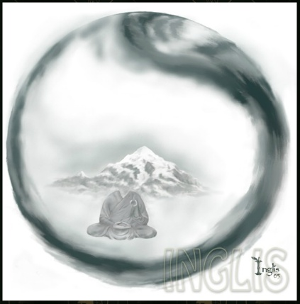
For the fulfillment of our vision, Cosmos Chan Community provides the following concrete programs of the Three Types of Activity:
Global distribution of Chan Dharma for uplifting human quality
- Provide support for holding activities such as Chan Lectures, Chan Dialogues, Chan Conferences etc., for those Chan/Zen practitioners who want to share their Chan/Zen investigation and actualization.
- Provide support for holding general or intensive Chan Retreats, for those Chan/Zen practitioners who need common or profound guidance in their Chan/Zen investigation and actualization.
- Provide support for establishing local Patriarch/Matriarch Chan communities and carrying out all their activities of Chan Investigation, for those Chan/Zen practitioners who are willing to be our Global Affiliates.
Actively nurture the talents to distribute Chan Dharma over the world
- Perform Chan training of nourishing Associate Chan (Zen) Teachers for assisting Chan teachings, Chan discourse, live Chan, etc., and for acting as Retreat Monitors, Apprentice Retreat Supervisors for Intensive Chan Retreat. The prerequisite for participation in these kinds of Chan training lies in Chan practitioners’ better-than-average potentiality, and their diligent Chan investigation.
- Perform Chan training of nourishing Chan (Zen) Teachers for Chan teachings, Chan discourse, live Chan, etc., and for acting as Retreat Supervisors, Apprentice Retreat Leaders, and guiding Interview for Intensive Chan Retreat. The prerequisite for participation in these kinds of Chan training lies in Chan practitioners’ better-than-average potentiality, and their extraordinary diligence in Chan investigation.
- Perform Chan training of nourishing Chan (Zen) Masters for transmitting Chan Dharma, confirming Chan practitioners’ realization, and acting as Retreat Leaders, as well as guiding Interview for Intensive Chan Retreats. The prerequisite for participation in these kinds of Chan training lies in Chan practitioners’ superior potentiality, and their extraordinary diligence in Chan investigation.
Transmitting Dharma lineages for establishing Buddha’s Pure Land on Earth
This is to give the legitimate seal of confirmation to authenticate a Chan practitioner who has completed his/her Chan training with a certain level of genuine realization. Upon receiving the transmission, the Chan practitioner should take on the mission of transmitting and upholding the Patriarch/Matriarch Chan Dharma, and generate great vows of non-abiding for benefiting all sentient beings. The following is a brief description of the encouragement to the recipients of transmission by Patriarch Sheng Yen :
-
Chinese Chan is the transcendental approach of sudden enlightenment in the Mahayana Buddhism. In sudden enlightenment, one is awakened to the self-nature (Skt. svabhava) of all phenomena, and that is the nature of emptiness (Skt. sunyata). After seeing into self-nature, one must generate great vows to spread the Chan Dharma with correct view and right action.
-
Experiencing correct view is precisely seeing into the nature of emptiness oneself. It is seeing into self-nature, which is seeing into the Buddha nature. Within the nature of emptiness there is the function of boundless wisdom and compassion, so it is called the Buddha nature. However, seeing into self-nature is not the same as the complete attainment of Buddhahood (full or complete enlightenment), nor is it equal to emancipation (ultimate enlightenment). There are still a lot of vexations waiting for one to handle, and a lot of work waiting for one to finish. The difference is that one now clearly knows the path one should take, and one is also capable of seeing clearly how to handle one’s problems.
-
An individual given the responsibility of transmission should feel joyful, but should not feel prideful. One should feel happy, but must not feel self-satisfied. One should still maintain the Chan Investigation one is familiar with, and be prudent in one’s daily speech and bodily actions at all time. By so doing, one will be the person who benefits most and progresses most quickly.
-
As for the relationship between master and disciple, Venerable Patriarch Dongchu once told me, “thirty percent master-disciple, seventy percent fellow practitioners on the path”. What it means is that the relationship should be like one between learned friends who serve as supporting, favorable conditions for each other. The disciple venerates the master out of gratitude for the benefit of Dharma received from the master. The master respects the disciple out of appreciation of the disciple’s carrying on the Dharma transmission. The master does not possess absolute authority. For the disciples, the master plays the role of a consultant on the guidance of techniques and a witness who verifies one’s level of realization. Between the two is a merging relationship of teaching and learning the Chan Dharma. What the disciple learns from the master is accurate Chan Dharma; one is not to emulate the master himself/herself.
